Why is oil important in massage
While the body’s skin can be massaged dry, the absence of oil makes the whole process and technique, for both the therapist and customer, less efficient and less comfortable. Therefore, the spa world typically incorporates oils which are suitable for massage. This ensures smooth movement of technique, avoiding friction between a therapist’s hands and skin.
There are many different types of massage, desired for a variety of reasons and conditions. In parallel, the oils applied depend on the treatment. Each oil should have certain properties suitable for that particular massage which in turn enhances the overall benefits and effect.
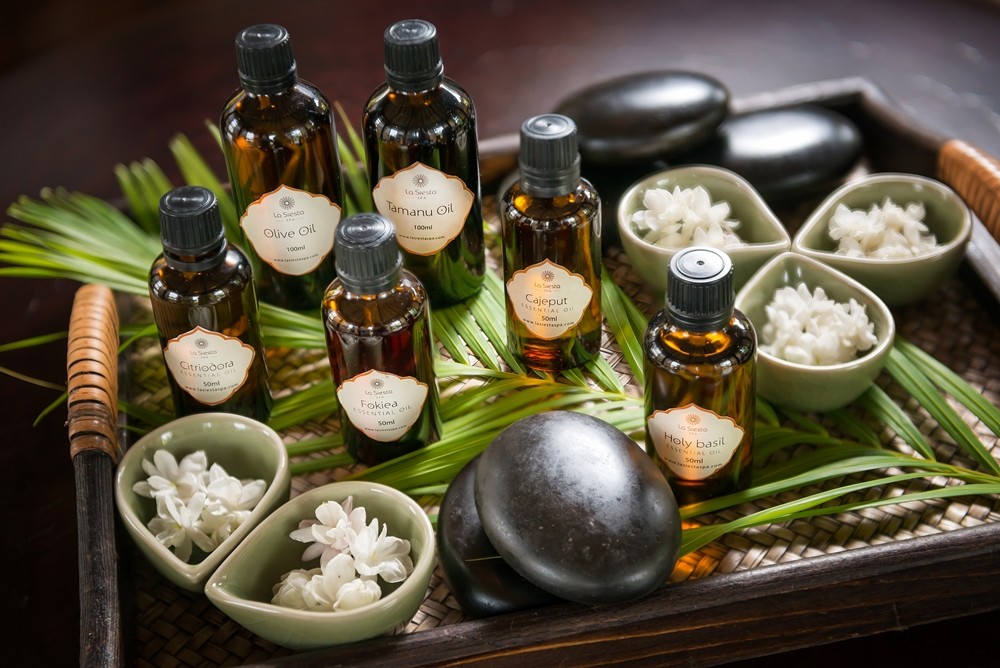
Essential oils are used to balance the mind, body, spirit and emotion. The word ‘essential’ refers to the ‘essence’ of a plant’s fragrance. Carrier oils, also known as base oils, dilute essential oils and ‘carry’ them onto the skin.
Each spa applies its preferred type(s) of massage oils, which is one way spas are differentiated.
Some of the most common essential oils include lavender, rosemary and peppermint. However, at La Spa where we incorporate as many eastern influences as possible, the four essential oils used are locally inspired, steeped in Vietnamese and southeast Asian tradition and generate an authentic experience. They are fokienia, citriodora, holy basil and Cajeput.
The two carrier oils used at our spa are one common and one local. Olive Oil is the most generic carrier oil used in the world and we balance this with a traditional equivalent, tamanu oil, widespread in Vietnam.
Base/carrier oils
Olive Oil
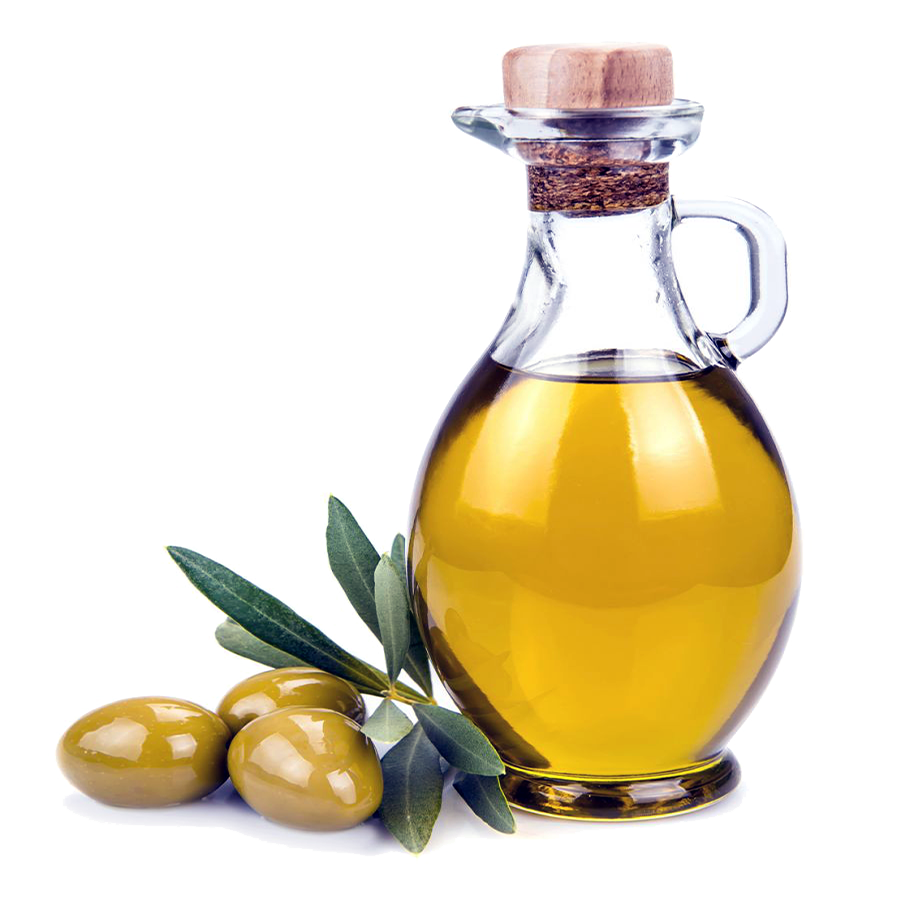
The olive tree is native to areas along the Mediterranean coast stretching to Iran on the southern edge of the Caspian Sea. The tree grows very slowly, maturing after 4-6 years of growth and producing fruit between 5-12 years after germination. While the tree can tolerate conditions of drought, it grows best in light fertile well drained soil in plenty of sunlight. The tree is highly valued for its fruit, the olive, which is the source of olive oil. Over the past 10 years Vietnam has imported olive trees but not on a wide scale. Olive oil is the liquid extracted by pressing the whole olive.
In addition to its use in cooking, olive oil recognized for its benefits to skin, hair and nails. A saying from ancient Spain identifies the olive’s health benefits: “olive oil slays all disease“.
Benefits of Olive Oil
- Contains Vitamin E contributing to olive oil’s anti-aging benefits, helping to restore smooth skin and protecting against ultraviolet rays.
- Contains polyphenols and phytosterols, antioxidant ingredients, to protect the skin from premature aging.
- Contains hydroxytyrosol, a rather rare compound, which helps to prevent free radical damage to the skin.
- Olive oil is used as a skin exfoliator. A common method is to make a ‘scrub’ from olive oil mixed with natural sea salt.
- Unlike commercial moisturizers that can clog pores and exacerbate current skin conditions, olive oil penetrates deeply into the skin while providing a cleansing effect.
Tamanu Oil
The tamanu nut tree (which also goes by numerous common names including Alexandrian Laurel, ball tree, beach calophyllum, beauty leaf, Indian laurel, Indian doomba oil Tree, satin touriga ……) is an evergreen tree and member of the mangosteen family. It is indigenous to areas of South East Asia, Polynesia, East Africa and south Indian coastal regions. It prefers salty sandy conditions of coastal areas; however, in Vietnam it grows wild in central, south east and south west mountainous regions. It is also planted to give shade.
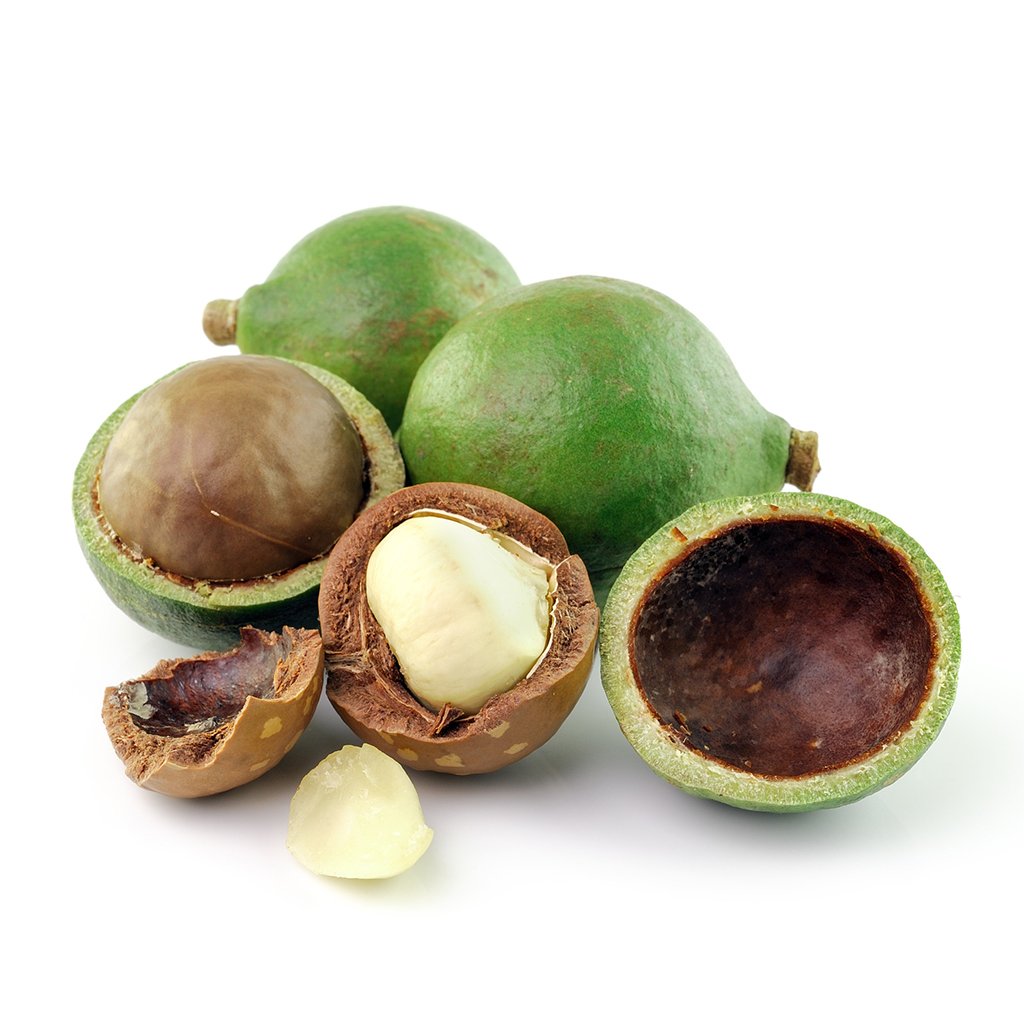
Tamanu oil is a natural nut oil extracted from the nut kernels of this tree and it has many benefits.
Benefits of Tamanu Oil
- Relieves and protects the skin against inflammation, redness, sunburn and insect bites.
- Regenerates the skin by promoting the formation of new tissue and healthy cell growth; effective in healing wounds, burns and cuts.
- Reduces scarring, especially the appearance of scars that more than a year old.
- Contains antiseptic, antibiotic, antibacterial, anti-fungal properties.
- Treatment for acne scars.
- Antioxidant, anti-ageing and anti-wrinkle properties.
- Moisturizes, nourishes and repairs epidermal cells of dry and damaged skin.
- Hypoallergenic (non-irritant, non-sensitizing).
As a result, the benefits tamanu oil are wide ranging for numerous skin conditions including everything from anti-aging skin care to scar treatments, it is a natural solution in the treatment of acne and also acts as a skin moisturizer.
Essential oils
Fokienia Essential Oil
Fokienia is a conifer tree belonging to the cypress family. It also goes by other names including Fokienia Hogginsii, Fujian cypress, pemou, Siam wood, coffin wood. It is prevalent in South East Asia – native to southeastern China (provinces of Zhejiang, Guizhou, Yunnan and Fujian), north Vietnam (provinces of Ha Bac, Ha Giang, Ha Tinh, Hoa Binh, Son La, Nghe An, Lao Cai, Lai Chau, Thanh Hoa, Tuyen Quang, Yen Bai and Vinh Phu), west central Vietnam (provinces of Dak Lak, Gia Lai, Lam Dong), northwest Laos.
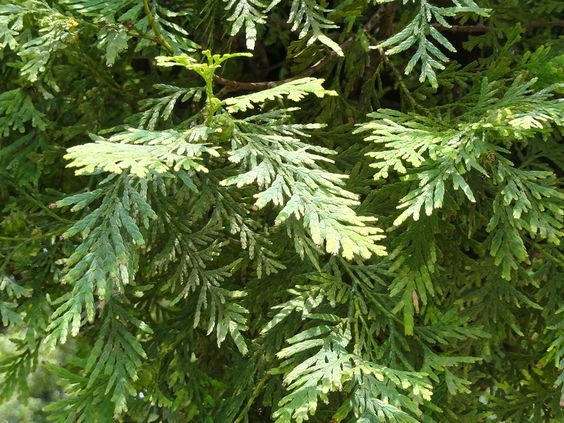
The name is derived from the old Romanized name of Fujian province in China. The tree was discovered by Captain A. Hodgins around 1904 and later introduced into Europe.
Fokienia essential oil, also referred known as pemou or Siam wood oil, is a rare and valuable oil extracted from the roots and wood of the tree. As the Vietnamese believe the oil brings eternal life, it’s not surprising this essential oil has long played a role in traditional medicine as well as in religious rituals.
Benefits of Fokienia Essential Oil
- Contains powerful anti-inflammatory compounds which help prevent or reverse damage to the skin from free radicals. Free radicals are one of the main causes of premature skin aging. Fokienia essential oil makes a great addition to anti-aging formulas.
- Thanks to its anti-inflammatory and sedative properties, the oil is often used as a physical pain relief. In addition, it is also known to alleviate negative emotions associated with isolation and loneliness.
- Compounds found in Fokienia essential oil are currently being investigated for the role they play in making transdermal transmission more effective. In other words, the oil makes a great additive in the case of therapeutic topical applications (ie. external application on skin) of essential oils.
Citriodora Essential Oil
Citriodora or lemon eucalyptus, a lemon-scented gum tree, is the jewel in the crown of the eucalyptus family. (It is also known as blue spotted gum and eucalyptus citriodora). It is native to temperate and tropical north eastern parts of Australia. The name corymbia citriodora derives from the Latin citriodorus, meaning lemon-scented. The tree’s scent is extremely strong, producing an intense aroma when the leaves are crushed. The lowland areas in Vietnam are also suitable to its cultivation.
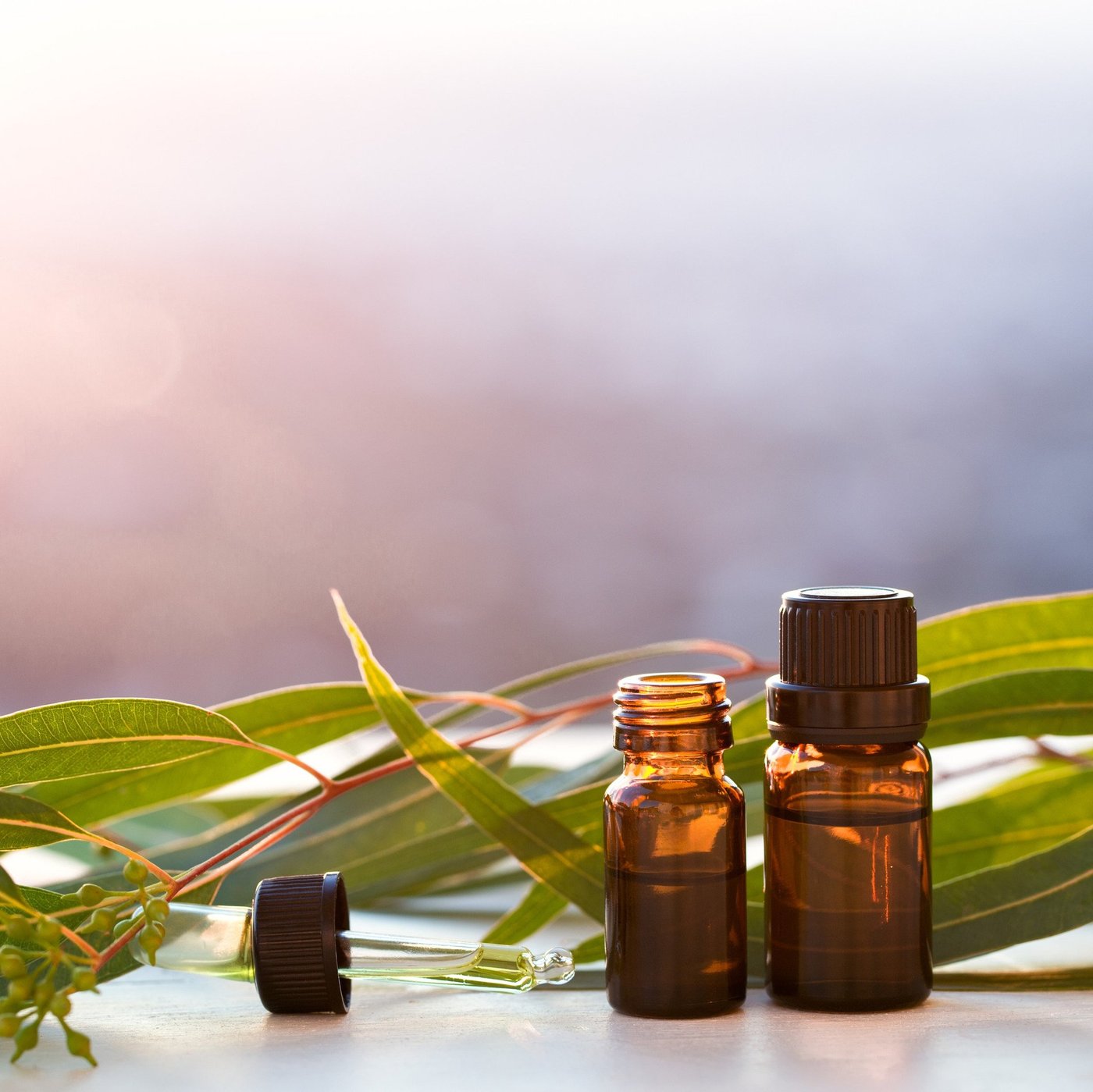
The essential oil of citriodora is extracted from the elongated leaves by steam distillation.
Benefits of Citriodora Essential Oil
- The rosy-citronella fragrance makes citriodora essential oil an ultimate natural repellant against insects such as mosquitoes, bugs, ticks and fleas.
- It can assist in destroying harmful viruses and microbes responsible for making respiratory infections vulnerable.
- This oil enhances pitta energy. It has a positive effect and supports in opening the heart, which is responsible for generating forgiveness, compassion, love for oneself and for others, as well as stimulating the feelings of self-empowerment and self-esteem.
- A body massage using citriodora oil can help rejuvenate the mind, body and soul.
- Since ancient times, citriodora leaves and their essential oil have been used to treat various skin disorders such as burns, scabies, wounds, dermatitis and erysipelas.
- Citriodora oil has antiseptic, antibacterial, antifungal and antiviral properties. These help combat the growth of unhealthy micro-organisms which cause skin disorders and make wounds, cuts and burns more infectious.
Holy Basil Essential Oil
Tulsi (ocimum sanctum) or holy basil is an aromatic, potent green plant. It is native to the Indian sub-continent and cultivated for religious and medicinal purposes. It is also found widespread through many other regions including Vietnam. Considered a sacred plant by the Hindus, it is planted in many Hindu shrines, and has long been associated with Indian medicine to treat a wide range of conditions. Holy basil essential oil is extracted from the leaves. It is considered a tonic for the mind, body and spirit, promoting purity and lightness in the body.

Benefits of Holy Basil Essential Oil
- Rich in vitamins A and C, in addition to phytonutrients. The oil safeguards the skin from aging. It encourages skin renewal and a more even skin tone, helping to smooth and brighten complexion.
- Daily application can help prevent many skin disorders. Its effective anti-bacterial and anti-fungal ingredients can kill harmful microbes which cause skin damage and associated problems. It also helps control skin inflammations, such as eczema and psoriasis, by reducing itching and redness.
- The oil contains nourishing compounds to soothe irritated skin, rashes and sunburn.
- It has calming qualities which help lighten one’s mood. Therefore, the oil is recommended to combat feelings of exhaustion, nervous tension, depression and melancholy.
- It is well-known acne treatment. Adding holy basil essential oil to skin cream or even applying it, in diluted form, direct to affected areas can help dry out acne and reduce the spread of acne. Regular use may help prevent new breakouts, keeping skin smooth and blemish-free.
Cajeput Essential Oil
The cajeput tree is an evergreen tree, native to northern Australia, New Guinea and the Torres Strait Islands. Often known as tea tree, its other common names include weeping paperbark, long-leaved paperbark, punk tree, white bottle brush tree or white paperback. The cajeput tree is also common in many Asian countries such as Vietnam, Cambodia and Indonesia. In Vietnam, natural Melaleuca forests are sparsely distributed in the northern hills (eg Vinh Phu, Bac Thai and Ha Bac), and more concentrated in the central and southern areas of Quang Binh, Thua Thien Hue, Da Nang and Ha Tinh. Long An, Dong Thap, An Giang and Hau Giang).
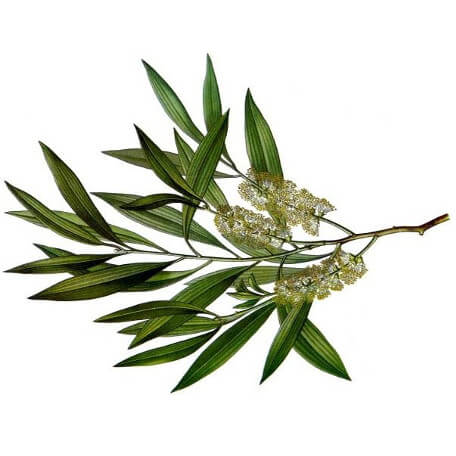
Cajeput oil is produced by steam distillation of fresh leaves and twigs of the tree. It has many health benefits including in pain relief and acts as a natural treatment for respiratory systems in distress.
Benefits of Cajeput Essential Oil
- Cajuput oil is efficient in keeping insects away. Its insecticidal properties are so strong that a diluted solution can be sprayed or vaporized to drive away mosquitoes, ants and so on.
- It smooths and brightens skin, keeping it free from infections. Thus, it is a common ingredient in cosmetics and antiseptic creams. It also tones the skin and works well as a general skin tonic.
- Cajuput oil is anti-spasmodic and relieves cramps. As a detoxifier, it helps combat pimples and acne, while its anti-inflammatory properties help the oil bring relief from inflammation.
- It stimulates the eccrine (sweat) glands, promoting perspiration and acts as a sudorific. These effects are beneficial to the body as perspiration aids the essential removal of toxins.
- The oil also relieves muscle and join ache.



![LA’GAZINE [ISSUE 3 – AUTUMN & WINTER EDITION 2019]](https://laspas.vn/hoi-an/wp-content/uploads/sites/4/2019/08/PQC_8113-1200-600x400.jpg)


